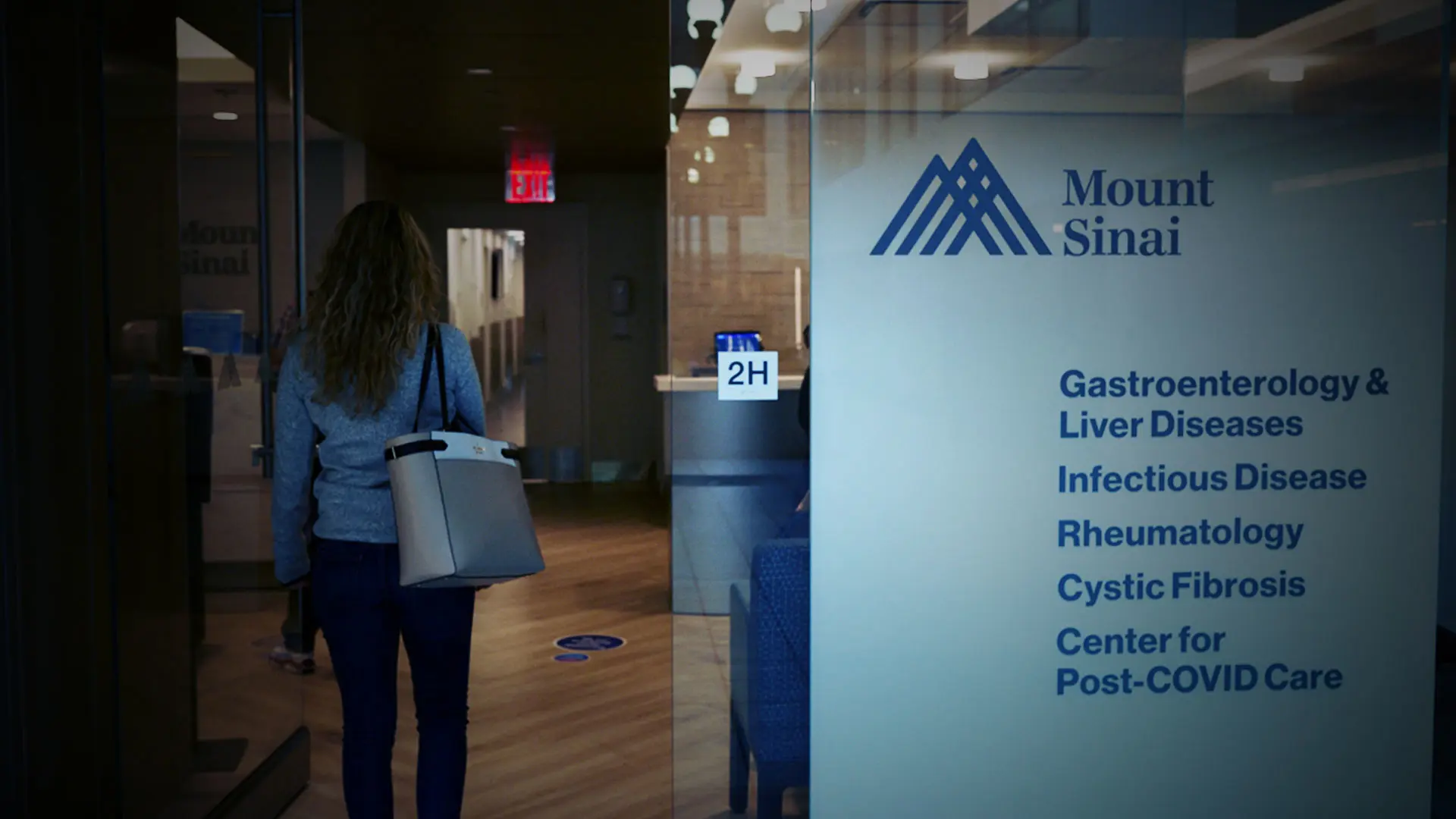Mount Sinai’s Center for Post-COVID Care is part of a novel, multisite study investigating whether abnormal pituitary hormone levels are a cause of post-COVID fatigue, says principal investigator Zijian Chen, MD, Director of the Center, and Associate Professor of Medicine (Endocrinology, Diabetes and Bone Disease). The study, which aims to understand potential endocrine causes for post-COVID fatigue, is funded by the National Institute of Diabetes and Digestive and Kidney Diseases.
Post-COVID chronic fatigue syndrome, also known as long COVID, has been reported in up to 30 percent of COVID-19 survivors, including those without severe symptoms during the acute infection, Dr. Chen says.
“We are seeing patients with excessive fatigue every day at our Center for Post-COVID Care, and they are seeking help to identify the source of their symptoms,” Dr. Chen says. “We hypothesize that pituitary hormone abnormality is underestimated, since these hormones are not routinely measured. Elucidating mechanisms underlying direct and/or indirect pituitary dysfunction caused by SARS-CoV-2 infection is critical and may affect the management of post–COVID-19 patients.”
At Mount Sinai, the study is led by Dr. Chen and Se-Min Kim, MD, Assistant Professor of Medicine (Endocrinology, Diabetes and Bone Disease). The study is also being conducted at Cedars-Sinai Medical Center in Los Angeles, led by Artak Labadzhyan, MD. The principal investigator of the multisite study is Takako Araki, MD, a former Mount Sinai fellow who is Assistant Professor of Medicine at the University of Minnesota.
“COVID-19-related extra-pulmonary damage is common and can occur in patients with mild symptoms,” Dr. Araki says. “There is a strong need to establish optimal post-infection health care strategies for these patients, yet underlying mechanisms remain to be studied.”
Clinical symptoms of long COVID include hypotension without evidence of cardiac dysfunction, reduced cognitive function including brain fogginess, sleep disturbances, and generalized weakness. These symptoms mimic those experienced by patients with well-described pituitary hormone deficiencies and suggest that pituitary damage in patients with COVID-19 may be implicated in the highly prevalent and debilitant post–COVID-19 chronic fatigue syndrome, Dr. Chen says.
“We hypothesize that pituitary hormone abnormality is underestimated, since these hormones are not routinely measured.”
Zijian Chen, MD
“So far, we have been observing quite high frequencies of pituitary hormone abnormalities,” he says. “Our study will potentially enable the development of a clinical guide for endocrine health management and follow-up for COVID-19 patients and address this largely unmet public health need.”
The two clinical sites each seek to enroll 150 participants who are age 18 and older and have had a COVID-19 infection, and to follow at least 75 of these participants in a longitudinal study. The participants will receive blood tests assessing pituitary gland function, namely cortisol, growth hormone, thyroid hormone and sex hormone, and answer a short online survey. Those with high questionnaire scores and/or abnormal pituitary hormone levels will be longitudinally assessed every three months up to one year. The investigators at the University of Minnesota will also perform cellular and molecular analyses using autopsy-derived pituitary tissues obtained from COVID-19 deceased patients.
The study is just one initiative of the Center for Post-COVID Care, which Mount Sinai launched in 2020 as the first such center of its kind. Its aim is to provide personalized, multispecialty care to recovering patients while gathering vital clinical data.
People with long COVID suffer from a variety of chronic conditions, Dr. Chen says, including increased risk of thromboembolic disease, cardiovascular complications, hepatic and renal impairment, and systemic inflammatory response syndrome. The Center for Post-COVID Care is marshalling an array of clinical tools and research expertise to evaluate the long-term systemic impact of COVID-19 on patients, including high-resolution CT imaging and pulmonary function tests to monitor lung performance.
The linchpin of the Center’s investigative work is its COVID-19 Registry, which collects baseline information of participating patients in varied areas such as comorbidities, socio-demographics, behaviors, mental health, and medications. Researchers further obtain baseline measures of pulmonary symptoms and physical indicators such as biometrics, spirometry, EKG, bloodwork, and antibody titers for SARS-CoV-2. The registry’s goal is to inform further research and treatment around the world.
“At the Center for Post-COVID Care, our goal is to bring the most advanced science and compassionate care to those experiencing the serious aftermath of this disease,” Dr. Chen says.
For more information about the endocrine/pituitary hormone study, please contact steven.sims@mssm.edu or call 347-651-1269.
Featured

Zijian Chen, MD
Associate Professor of Medicine (Endocrinology, Diabetes and Bone Disease)

Si-Min Kim, MD
Assistant Professor of Medicine (Endocrinology, Diabetes and Bone Disease)

Takako Araki, MD
Assistant Professor of Medicine, University of Minnesota
